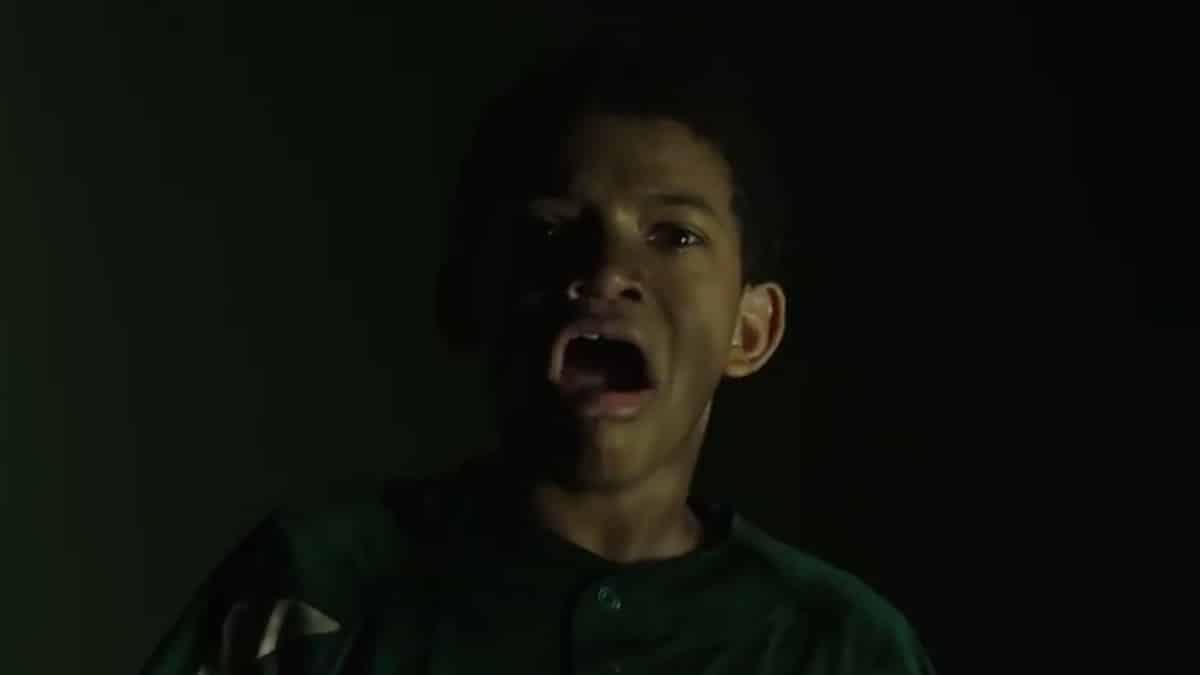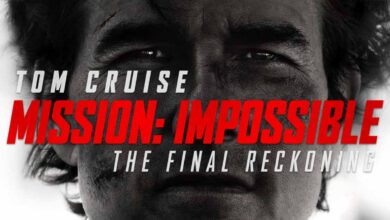AFI Fest Review: The Boy Behind the Door
The Boy Behind the Door (2020) is a horror film, written and directed by Justin Charbonier and Justin Powell. Kevin (Ezra Dewey) and Bobby (Lonnie Chavis) are a couple of kids who play baseball. They are also BFFs. As the film begins, we watch the pair honing their baseball skills, in uniform, in a forest somewhere. The two stop for a while to lay on the grass, in the late afternoon sunshine, and discuss their innermost desires.
Kevin expresses a desire to move to California, and the two agree they are going to. The two discontinue their existential musings and return to their game of catch. When, wouldn’t you know it, they lose one of their balls down a hill in this forest. Kevin goes after it. When he doesn’t return for a while, Bobby goes looking for him, audibly reminding him that the two are expected at a game and are going to be late if Kevin doesn’t get his shit together. Suddenly, someone smashes Bobby’s head into a tree, knocking him unconscious.
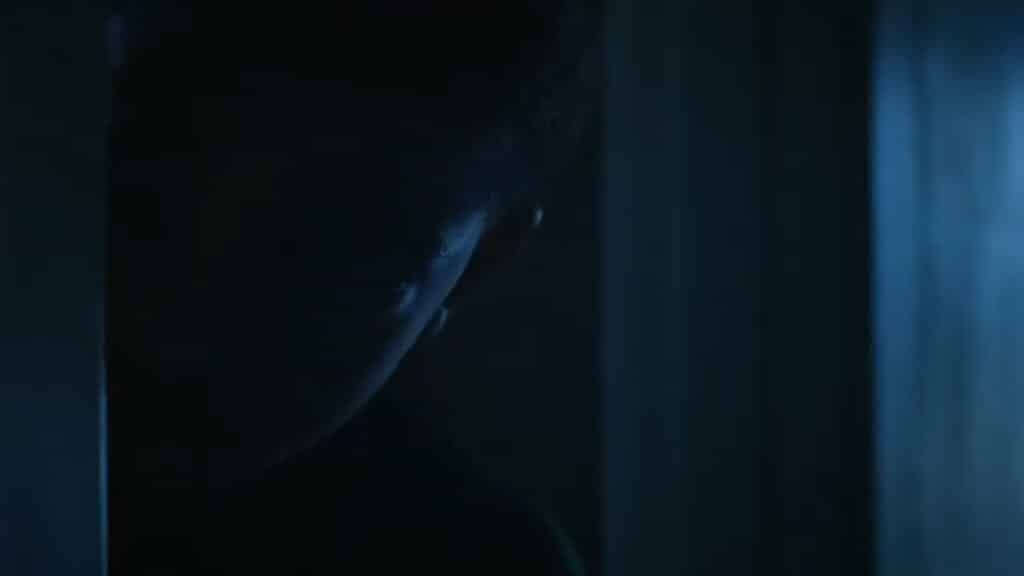
Bobby wakes up later inside the trunk of a car. Screaming for help and panicking, Bobby somehow manages to bust out of his vehicular prison. He finds himself outside of a strange house with an oil derrick outside. He is about to GTF outta there, when he hears Kevin’s anguished cries from inside the house. Bound by his sense of honor and friendship, Bobby opts not to run for help, but rather to try and enter the house and rescue Kevin himself.
What horrors await Bobby inside the scary-looking farmhouse, within which Kevin is contained? What kind of sickos would do this to a couple of fine young boys like Kevin and Bobby? Will Bobby find Kevin? Will the two live to play baseball another day? All of these mysteries, and so many more will be explored and answered in The Boy Behind the Door.
I don’t get it. I just don’t fucking get it. People actually like this movie. There was a Q&A with the filmmakers following the film, in which the moderator blew a bunch of smoke up the asses of Charbonier and Powell about how good this thing was, and I found myself quoting Will Ferrel’s Mugatu from Zoolander (Ben Stiller, 2001), “I FEEL LIKE I’M TAKING CRAZY PILLS!!!”
The major talking point about this film, seems to be that the two leads, Chavis and Dewey offer up exceptional performances, especially for children, and how remarkable it is that they are able to carry the entire film, almost on their own. First off, this is a total red herring. Any talk about the strength of the performances is just there to distract you from the fact that not only is there no real story being told here, but what little story there is, is riddled with inconsistencies, and things that make no sense.
Additionally, while Chavis and Dewey weren’t necessarily bad, they weren’t necessarily great either. Chavis is alright, and Dewey is less alright than Chavis. Dewey is really only in less than half of the film, and I swear, 99% of his shots were extreme close-ups. Not only was this annoying, but after a while I started to wonder if they shot him this way to cover something else up. Like, is this kid really in a wheelchair and they just don’t want us to see it? This wasn’t the case, but I was like, can we pull the camera out of this kid’s nose for a shot or two?
The cinematography in this thing was not rad. There is a difference between stylish lighting, and “this is too fucking dark.” For reference, I refer you to the case of The People vs. Game of Thrones, Season 8, Episode 3: The Long Night.
Regardless of my issues with camera placement and lighting, part of the reason the performances of the two leads was unimpressive to me, was that there wasn’t much depth to the roles. All they did was scream and panic. There was no opportunity to show any kind of real range. It was the same issue I had with Leonardo DiCaprio winning a best actor Oscar for The Revenant (Alejandro González Iñárritu, 2015). I’m not suggesting Leo isn’t an Oscar caliber performer, nor am I saying that The Revenant was a bad film. But for me, DiCaprio’s performance was mostly him lying on the ground, groaning. Tom Hardy was easily the standout performance in that film. If you are going to give DiCaprio the statue, give it to him for a role with some meat on it. Give it to him for The Wolf of Wall Street (Martin Scorsese, 2013), or The Aviator (Martin Scorsese, 2004). Don’t give it to him for The Revenant. Consequently, the jury is still out on the quality of Dewey and Chavis.
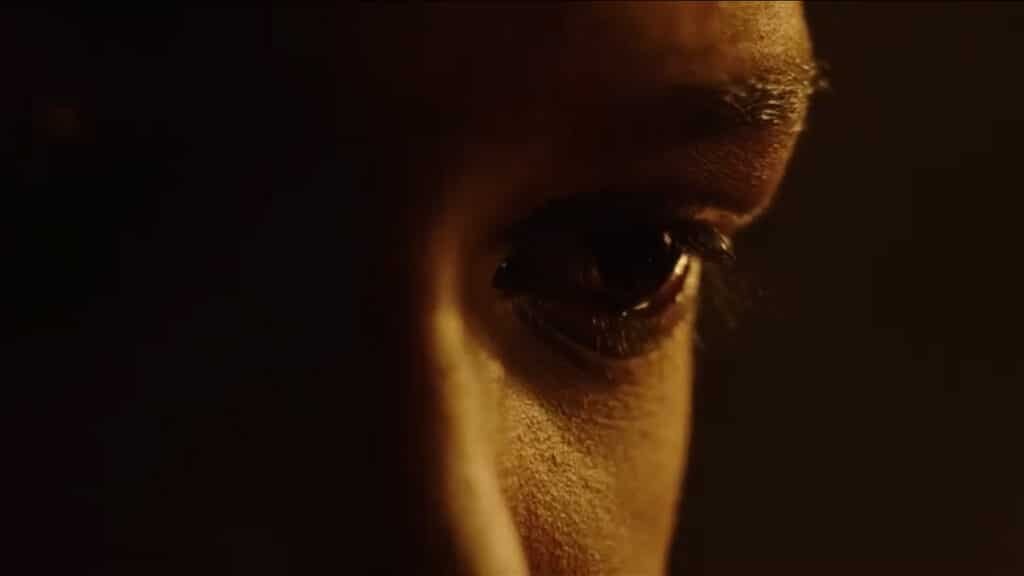
If you are looking for a film with young leads providing remarkable performances, you should avoid this movie. There are much better, much more impressive child performances in films that are much, much better than The Boy Behind the Door. Jodelle Ferland in Tideland (Terry Gilliam, 2005), Tatum O’Neil in Paper Moon (Peter Bogdanovich, 1973), Jacob Tremblay in Room (Lenny Abrahamson, 2015), Ivana Baquero in Pan’s Labyrinth (Guillermo Del Toro, 2006), Kåre Hedebrant and Lina Leandersson in Let the Right One In (Thomas Alfredson, 2008), Mira Barkhammar in We Are the Best! (Lukas Moodysson, 2013), Henry Thomas in E.T. The Extra Terrestrial (Steven Spielberg, 1982), Natalie Portman in Leon: The Professional (Luc Besson, 1994), Keisha Castle-Hughes in Whale Rider (Niki Caro, 2002), David Bennent in The Tin Drum (Volker Schlördorff, 1979), etc. I could go on, but I think you get the point. I’m sorry, but neither Dewey nor Chavis are anywhere near as good as any of the noteworthy performances I’ve mentioned. To quote the 1959 Halloween classic “Foo Man Choo” by The Revels, “so sorry fellas, try again.”
So let’s pretend for a minute that I didn’t just spend the last thousand words mercilessly berating two children for simply doing their jobs. After all if the script is bad, what are a couple of young actors to do? I don’t blame Jake Lloyd for the numerous failures of Star Wars: The Phantom Menace (George Lucas, 1997), so why blame Dewey and Chavis for the numerous failures of The Boy Behind the Door?
I’d like to give an obligatory SPOILER WARNING at this point, for I’m about to bash some of the specifics of this flick. If you plan to watch this thing anyways, go ahead and stop reading, and watch the film. All I’ll say in advance is, “I told you so.”
As the film progresses, it becomes clear that Charbonier and Powell didn’t really have a story to tell. They must have just had a list of bullet points of ways to injure their protagonists, and just came up with whatever bullshit they needed to to get from one bullet point to the next. The perpetrators of the kidnapping have no identity other than that they are Trump supporters (nice and subtle, guys), and that they are involved in some kind of sex trafficking/porno thing. Other than the inference that they make their living off of a sex-trade, they have absolutely no endgame in mind other than to harm these children.
For example, at one point Bobby is able to place a call to 911, which results in an officer being dispatched to the residence. But before we go any further, let’s forget about the utterly unrealistic depiction of law enforcement in this film in advance. After all, why would we concern ourselves with the things that cops would really do in a situation such as this? That kind of nitpicking is just going to get in the way of the dumb AF, non-story Charbonier and Powell are pretending to tell?
So a cop arrives, and one of the villains of the film just straight up murders him. Not one fuck is given about what will happen when this cop doesn’t radio back in within, oh, let’s say the first several hours after being dispatched on a 911 kidnapping call. But that’s okay, because apparently the cops in this town don’t give a fuck what becomes of their officers when dispatched on a 911 kidnapping call either. How convenient!
A big deal is made of a watch being given from one faceless fiend to the other. The watch, as we are reminded of several times, has a timer that is counting down to zero. What is that timer for? What is going to happen to these poor boys once that timer goes off? Well, your guess is as good as mine, because once the timer counts down to zero, it is never brought up again. If the purpose of the countdown timer was revealed at some point in the film, it was completely buried. This theme of just forgetting that there needs to be a dose of reality, in order to allow us to successfully suspend our disbelief, grew tiresome quickly.
The kids make some dumb decisions in the film. However, this is a standard horror trope: people in danger making bad decisions. Additionally, Kevin and Bobby are just a couple of young kids who are caught in the middle of a world of shit. It’s okay in my book if they make some odd or questionable choices, no matter how unrealistic the choices that they make might seem. However, the adults make a lot of dumb decisions too.
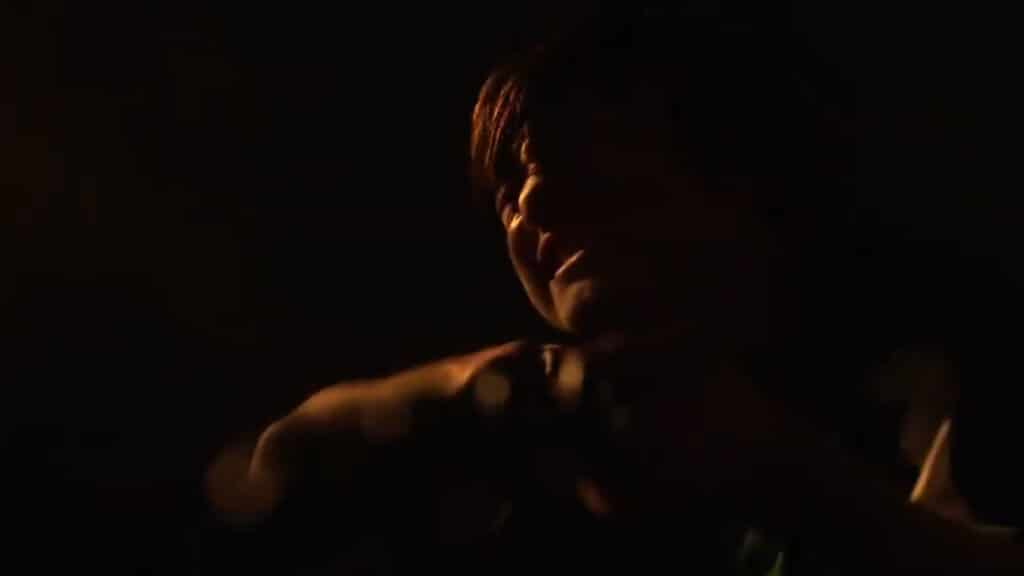
For example, late in the film, Bobby ends up handcuffing one of the villains to a pipe in the house. The kidnapper has a gun at their side. Bobby, instead of grabbing it, simply looks at the gun and runs. I was not in the kidnappers hand, mind you. Bobby could have easily grabbed the gun, or kicked it away from her. But no, Bobby decides he is better off if she remain armed. Okay. Fine. Whatever. I guess. I mean, he is just a scared kid.
So what does the kidnapper do? Immediately empty the clip in Bobby’s direction, striking him, almost totally inconsequentially mind you, in the leg. At this point in the film, the only person who might come for her is more cops. Instead of using the gun that Bobby very magnanimously left with her to shoot the cuffs off the pipe, she decides she’s just gonna kill Bobby, and hang out in the cellar.
This is a dumb, unbelievable decision on behalf of this kidnapper. Unfortunately, this dumb decision didn’t really seem to rise organically from the story. Instead, it felt like they decided Bobby had to get shot, and thus, any bullshit reason they could pull out of their ass to make it happen was just fine.
Another irritant in this film was the questionable lifting of elements from The Shining (Stanley Kubrick, 1980). We are not talking some kind of simple homage here. They pay homage to Night of the Living Dead (George Romero, 1968), by having it running on TV in the background of several scenes. I had no problem with this. When it comes to The Shining however, they lifted entire shots, sequences, and plot devices.
As someone who has dipped his toes in the art world occasionally, I know how it feels to want to pay respects to and acknowledge the things and people who inspired you to be where you are. Shit, Quentin Tarantino has based his entire career on that, and I absolutely adore his work. But in the future, if Charbonier and Powell are going to continue to make films, they may want to do themselves a favor and stay away from so many ostentatious callbacks. I just don’t think it’s a good idea to constantly remind your audience of another film that is infinitely superior to yours in every possible way.
That’s it. I’m dunn. There are other things in this movie that weren’t good, but I think you grok me on this thing by now. The Boy Behind the Door stinks on ice. Watch it at your own risk. Don’t believe the hype. Honestly, in the end, this thing came off like a broke-ass Room (2015) knock off. Do yourself a favor and take your $2.99 or whatever it costs to rent this thing, and rent Room instead. Even if you’ve already seen it. It really is a remarkable and impressive film. Room, I mean.
Review
Rating
RN Review of The Boy Behind the Door
The Boy Behind the Door stinks on ice. Watch it at your own risk. Don't believe the hype. Honestly, in the end, this thing came off like a broke-ass Room (2015) knock off.
